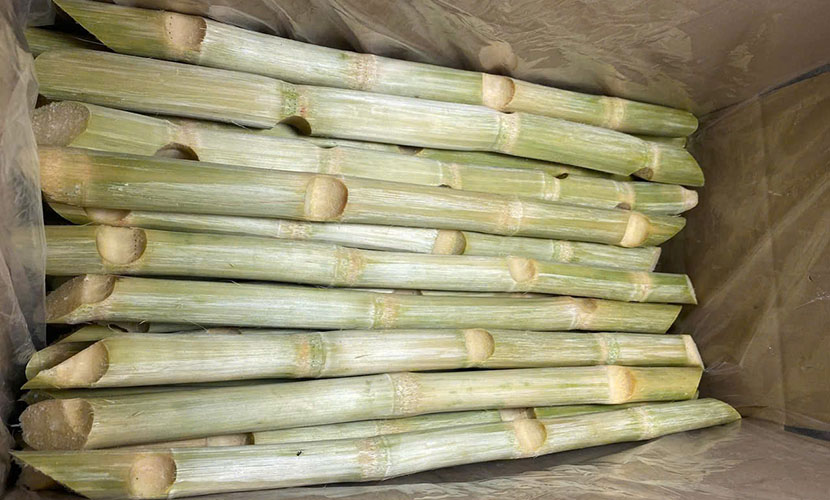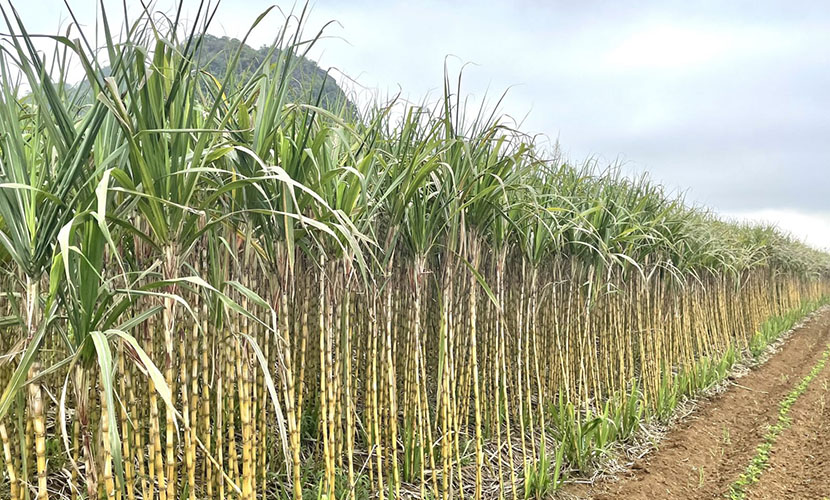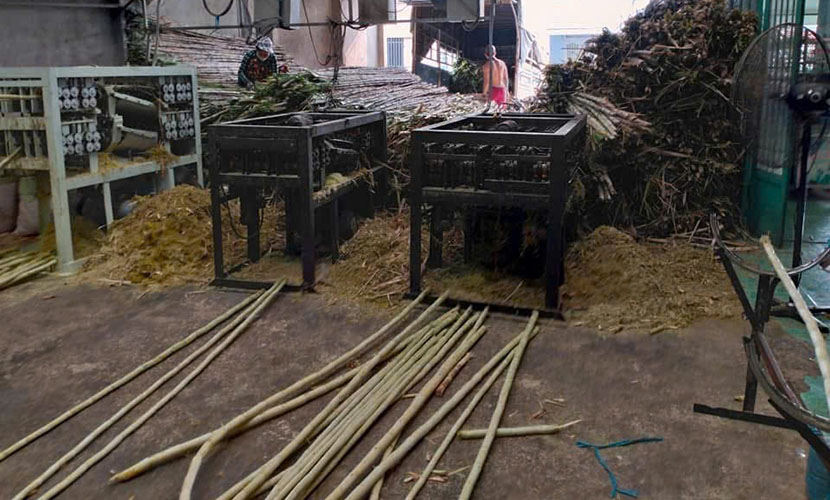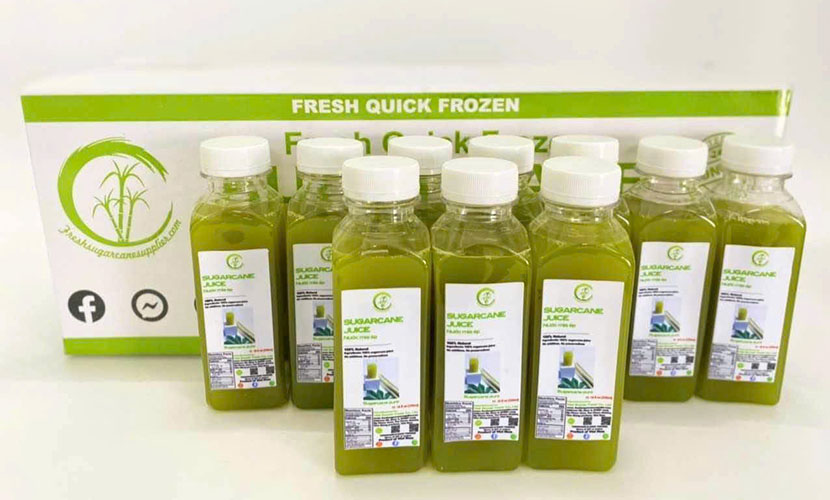
Vietnam’s sugar exports are facing a “dead end”. However, Vietnamese sugarcane exports are opening a new promising path.
In November 2021, the first shipment of sugarcane from Hoa Binh province successfully exported to Germany. This was a positive sign, not only for Hoa Binh but also for Vietnamese agricultural products in general.
The exported sugarcane is white sugarcane, produced in Tan Lac District, Hoa Binh Province. The buyer is a corporation based in Hamburg, Germany.

Vietnamese sugarcane farm
Before sending the German market, Vietnamese sugarcane exports had to pass extremely strict quarantine requirements to ensure high-quality standards. The selected sugarcane underwent preliminary processing to meet export quality standards.
According to Mr. Yen, an provincial official, exporting sugarcane to Germany requires Vietnam to meet rigorous checks. Specifically, they are microorganisms, insects, soil, nitrate residues, and pesticide residues. Therefore, Vietnamese sugarcane exports should follow strict food safety standards throughout the entire process. They include cultivation, harvesting, processing, packaging, storage, and transportation.
Ms. Nham, Director of the exporting company of sugarcane, stated that Germany is a demanding market in the EU zone. Unlike Asian markets, European consumers prefer sugarcane that has a light, refreshing sweetness. Fortunately, it is a unique advantage of Vietnam’s sugarcane.

Removing skin of Vietnamese sugarcane
The white sugarcane is carefully selected and undergoes two processing stages. The ends are fully removed, the skin is peeled and then cut into 35 cm segments. Afterthat, they are fozen and packed into 10 kg cartons, which are all in accordance with EU food safety standards.
“In this market, we are initially targeting Vietnamese expatriates, and then will expand to local consumers. Europeans generally do not consume sugarcane directly. Instead, they prefer it as juice, sometimes with added pineapple for enhanced flavor. That’s why sugarcane remains a popular product,” said Ms. Nham.

Vietnamese sugarcane exports
Vietnam’s sugarcane industry is facing numerous difficulties with sugar exports, while sugar imports continue to set “record” levels. Therefore, this represents a new and strategic direction to solve the profit dilemma for farmers and “unlock” export pathways for Vietnamese agricultural enterprises.
According to Ms. Nham, this is the first time a business in northern Vietnam has exported sugarcane to Europe. Beyond representing a brand for the company, exported sugarcane carries the heavy responsibility of representing the national sugarcane brand. The sugarcane industry must find the right path to sustainable development and assert its place in the global market. Therefore, the quality of exported sugarcane must remain consistently high over time.
“Many young businesses like ours still face many challenges. We truly need support from local authorities, especially in terms of production facilities and separating preliminary processing from other production stages. This would allow businesses more opportunities to grow and develop more internationally competitive products,” Ms. Nham added.
Regarding this issue, Mr. Nhuan, Director of the Hoa Binh province, stated that introducing fresh-eating sugarcane to foreign markets is a significant opportunity for both businesses and sugarcane farmers. Following initial successes, it is important to gradually build the brand and establish cooperative regulations between enterprises and cooperatives to achieve greater goals in development.

Vietnamese sugarcane juice
Exporting fresh sugarcane to major markets will also pave the way for other potential agricultural products from Hoa Binh province to expand internationally. This will attract both domestic and foreign investors to invest in sugarcane cultivation and processing. As a result, consumer and investor confidence in Hoa Binh sugarcane in particular, and Vietnamese sugarcane in general, will continue to grow.
In the context of global integration, there has been free trade agreements (FTAs). Therefore, it is essential for Vietnamese agri-products to improve quality and build strong brands to gain a solid foothold.
Branding agricultural products plays a crucial role in asserting quality and increasing value. Typically, branded agricultural products are worth 2–3 times more than those without branding. Therefore, the first thing businesses need is to be proud and confident in their products and in the stories behind their brands to create a unique identity and attract consumers.
Vietnamese source: https://diendandoanhnghiep.vn/cau-chuyen-xuat-khau-nong-san-xuat-ngoai-mia-va-khat-vong-vuon-tam-10123610.html
